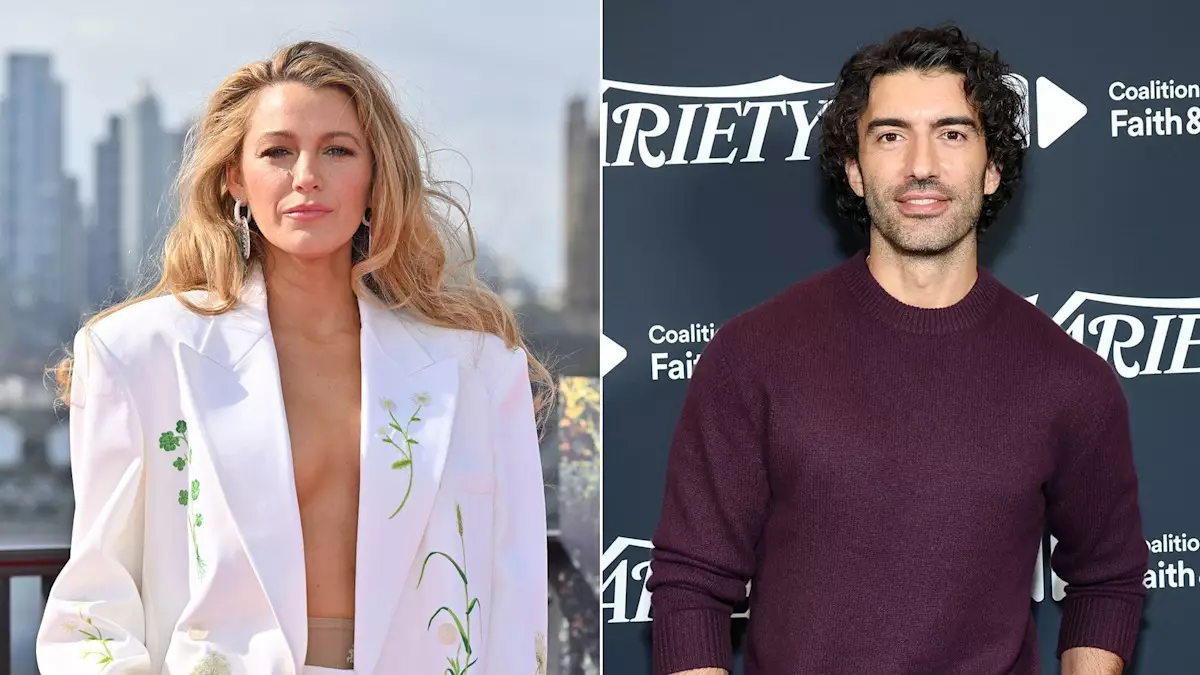In the world of entertainment, the fine line between personal reputation and public perception can quickly dissolve, resulting in legal repercussions and substantial financial distress for those involved. Such is the case for Justin Baldoni, the actor and director best known for his role in the acclaimed series *Jane the Virgin*. Currently, he is embroiled in a high-stakes legal battle against Blake Lively and Ryan Reynolds, as well as the New York Times, that has the potential to reshape his career and public persona.
Baldoni’s grievances stem from allegations made by Lively, which were subsequently reported by the New York Times, alleging inappropriate behavior on the set of his directorial project, *It Ends With Us*. In response, Baldoni is not holding back—he is pursuing a staggering $250 million defamation claim against the Times, coupled with a colossal $400 million lawsuit against the Hollywood couple. These figures alone indicate the gravity of the situation. For an individual whose net worth is estimated between $4 million and $6 million, such claims could signal an attempt to reclaim his narrative amidst the storm of public scrutiny.
While the trial is set to commence next year, the period leading up to it has already inflicted considerable emotional and financial strain on Baldoni and his associates. During a recent pre-trial conference regarding a gag order requested by Lively, Baldoni’s lawyer, Bryan Freedman, made it clear that his clients—comprising Baldoni, the producers of *It Ends With Us*, and several publicists—are facing dire repercussions from the allegations. Freedman characterized the impact on Baldoni’s team as “devastating,” underscoring the extensive toll that public accusations can exact on the lives and careers of those targeted.
It’s apparent that Baldoni’s legal approach is not merely a reaction to public claims but also a preemptive strike against potential long-term damage to his reputation. His decision to launch a dedicated website, titled “Lawsuit Info,” illustrates that he is employing a multifaceted strategy to control the narrative. This platform houses critical documents, including PDFs that outline the timeline of events and his amended complaint, offering the public insight into his perspective on the matter.
The “Timeline of Relevant Events,” which encompasses over 168 pages, is particularly notable. It accounts from Baldoni’s initial outreach to author Colleen Hoover in 2019, seeking to adapt her work, to the contemporary allegations that have led to the current legal debacle. By presenting this timeline, Baldoni aims to portray a narrative that counters the damaging claims against him, indicating that he feels compelled to not simply defend himself but to take an active role in re-shaping public discourse surrounding his character.
Baldoni’s situation also unveils a more significant issue within the entertainment industry—how powerful narratives can be constructed and deconstructed through public discourse and media reporting. As Freedman poignantly stated, once an allegation gains traction, it can become accepted as fact, making it exceedingly difficult for the accused to restore their credibility. This underscores the intricate relationship between public statements and their ramifications on personal and professional lives, particularly in an age dominated by social media and instantaneous information dissemination.
Moreover, Baldoni’s strategy raises questions about the effectiveness and ethics of leveraging legal action as a means of public relations management. While lawsuits can serve to protect individuals’ reputations, they can also lead to the risk of a drawn-out public spectacle, which might ultimately compound the negative attention. The balance between seeking vindication and avoiding further damage is a tightrope that many public figures must navigate in the wake of damaging claims.
As Baldoni heads into this uncharted territory, the outcome of his lawsuits remains uncertain, but the implications for his career are profound. The entertainment industry has witnessed similar high-profile cases where reputations were irrevocably altered, underscoring the need for caution among public figures. For Baldoni, whose career was on an upward trajectory, the next chapter may hinge not only on the legal verdicts but also on public sentiment, media portrayal, and the narrative that he succeeds in crafting amid the controversy.
While Justin Baldoni fights to reclaim his narrative in a landscape rife with allegations, he stands at a pivotal intersection where legal strategy, public relations, and personal reputation collide. How this battle unfolds may set precedents for how similar cases are handled in Hollywood and beyond.
